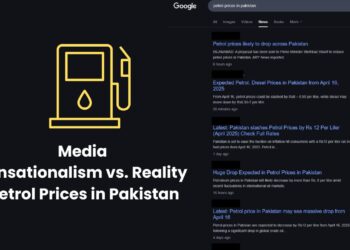Indo-Pakistan War of 1965: Why? & What Happened? A Bigger Picture – This is a much-researched war and has been studied and researched from various angles. To many war historians it may have been important because it involved largest tank battles after Second World War.
It was also a war between two professionally trained, disciplined armies that grew out of the same body: British Indian Army and its traditions of going after military and strategic targets. Both armies didn’t target civilian populations and remained purely professional; they also had a grudging respect for each other. These things also need to be appreciated.
Origins of the war lay in Kashmir dispute but also in the Indian defeat at Chinese hands in 1962. At that time Chinese – Pakistan’s new friends – hinted Ayub Khan to take advantage of Indian disarray and demoralisation in Kashmir. But Ayub Khan was under American pressure not to do anything to further strain India. Americans then were undertaking massive economic and military aid to India to rehabilitate its lost confidence. Pakistani military trained with Americans enjoyed superiority in firepower and training (amply demonstrated in the Run of Kutch Conflict) and if Ayub Khan could decide it was Pakistan’s decisive moment to force India to meaningful concessions in Kashmir. But Ayub was more interested in his economic plan which was not possible without the U.S. Support.
Americans offered to mediate on Kashmir. Talks between Nehru and Ayub governments started in Dec 1962, sponsored by the U.S. These talks between Bhutto and Swaran Singh happened in Pindi, in Delhi, in Karachi, in Calcutta and again Delhi and India accepted formally Pakistan’s hold on Azad Kashmir and was prepared to offer more territories to Pakistan in Poonch & Kashmir.
However, these small gestures were rejected by Pakistan as meaningless. These talks collapsed in 1963 – adding tremendously to Pakistani frustration for feeling betrayed by Americans.
However US pressure on Nehru continued; In the beginning of 1964 he sent Sheikh Abdullah to Pakistan looking for a solution and his biographers think that by then he was convinced that resolution of Kashmir dispute was important for a peaceful subcontinent. However Nehru died in May of 1964 while Abdullah was still in Pakistan and Shastri govt that followed had neither the vision nor the stature to make concessions on Kashmir. So what was their message? They forced Abdullah to come back and imprisoned him in Poona – Pakistan was doubly rebuffed. Restraint of 1962 now looked like total stupidity.
By 1964 all UN lead efforts to find a solution in Kashmir all demonstrably failed and Indian govt started saying that Kashmir was an integral part of India proper.
The strength of Pakistani armour as displayed in the Raan of Kutch conflict in early part of 1965 created hopes that a similar application of force in disputed Kashmir can force India to meaningful concessions in Kashmir – an opportunity Pakistan clearly missed in 1962, under its American obligations. This thinking lead to Operation Slam and Operation Gibraltar in Kashmir.
But it’s important to understand that ZA Bhutto and Aziz Ahmed were more determined for launching these operations; both Ayub and his new Commander in Chief were less hawkish; they didn’t want to start an all out war with India. Both remained hesitant till the end. The famous change of command from that hawkish savvy Gen. Akhtar Malik to Gen. Yayah on 1st Sept was apparently to slow down operations. Gen Akhtar Malik was poised to take Akhnor; it would have changed dynamics of war in Kashmir & Jammu front but Ayub/Yayah duo did not want to push India to attacking Lahore & Sialkot. Ayub as a military mind was always clear that India if pushed hard in a weak area – Kashmir – would come running into indefensible plains of Lahore and Sialkot. It was Bhutto’s belief in an international order and responsibilities of great powers that persuaded him against his better judgment of operations in Kashmir. Bhutto – principally right – had argued that Kashmir is a disputed territory and conflict in disputed territories was then norm and India will not attack Pakistan proper.
But India was prepared to violate the internationally accepted norm. It was why Pakistan called a midnight attack on Lahore and Sialkot across internationally accepted borders an “Undeclared War” by India – a point not understood by most in today’s media.
India failed to penetrate both Lahore and Sialkot though technically both are indefensible – at least then they were. Now with nuclear umbrella and short range missiles things have changed.
India’s later contention that it was only putting pressure on Lahore and Sialkot and didn’t intend to enter or take them was not convincing. The fact that it failed despite mobilising a much larger invading force was a Pakistani victory – made possible by the heroic battles and sacrifices by daring men like Maj. Aziz Bhatti Shaheed.
In retrospect Bhutto’s premise that India will not attack Pakistan across international borders looks pretty naive. But Ayub & Musa’s decision of not taking Akhnor was a blunder that lead to a disaster in that sector; both in terms of letting India space in attacking Sialkot and in terms of negotiations after the war.
A British writer of Pakistani origin, Dr. Farooq Bajwa, had written a very detailed account of this war in his 2013 book, “From Kutch to Tashkent – The Indo-Pakistan war of 1965” – this is a must read for all in media and all those who want to develop a logical and coherent view of our history.
The single line judgements of victory and defeat as mushrooming social media are only stupid. Wars are bigger phenomenon than that.

















